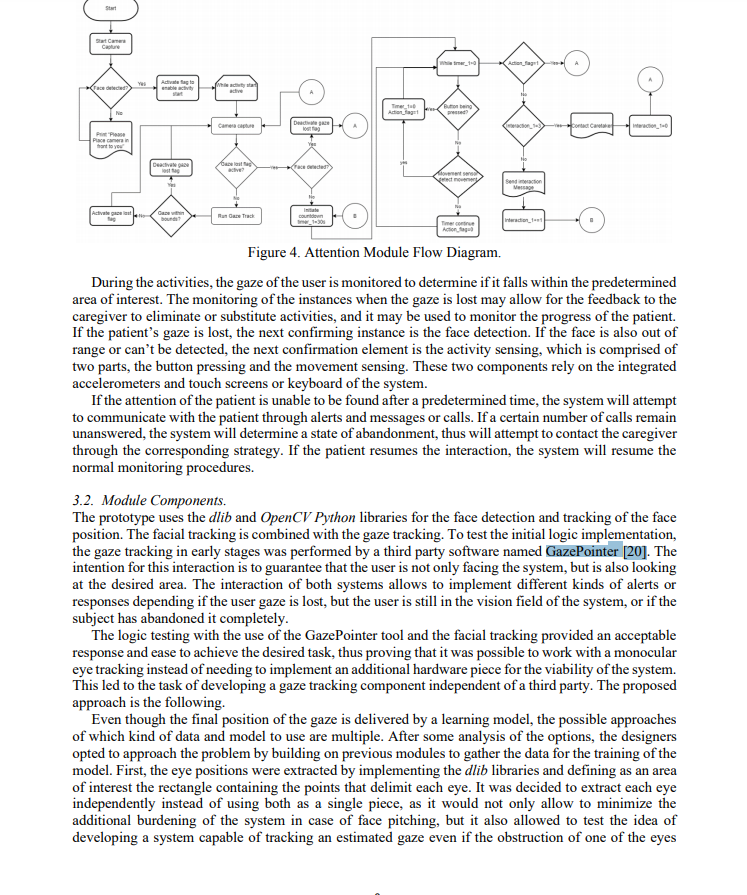Axiomatic thinking framework is used to develop a novel concept of “Care-Toy,” which helps caregivers of Alzheimer’s and dementia patients by providing much needed respite for themselves without compromising patients’ safety. “Care-Toy” interacts with a patient via stimulating images and sounds for touch interactions, actively keeping the patient’s attention for a needed duration as well as monitoring the patient’s status or alerting the caregiver if necessary. Systems solution for this concept could be effectively elaborated with the Axiomatic Design framework, leading to the development of a key module intended for measuring and maintaining the attention of the patient during the respite of caregivers. Gaze detection is the key module based on deep learning-based facial recognition system to monitor whether “Care-Toy” attracts the patient’s interest and maintains attention, otherwise to alert the caregiver. The module-junction structure could be derived from the decomposed functional requirement (FR)-design parameter (DP) tree structure and design matrices of them, which effectively defines the software system structure for this product.
